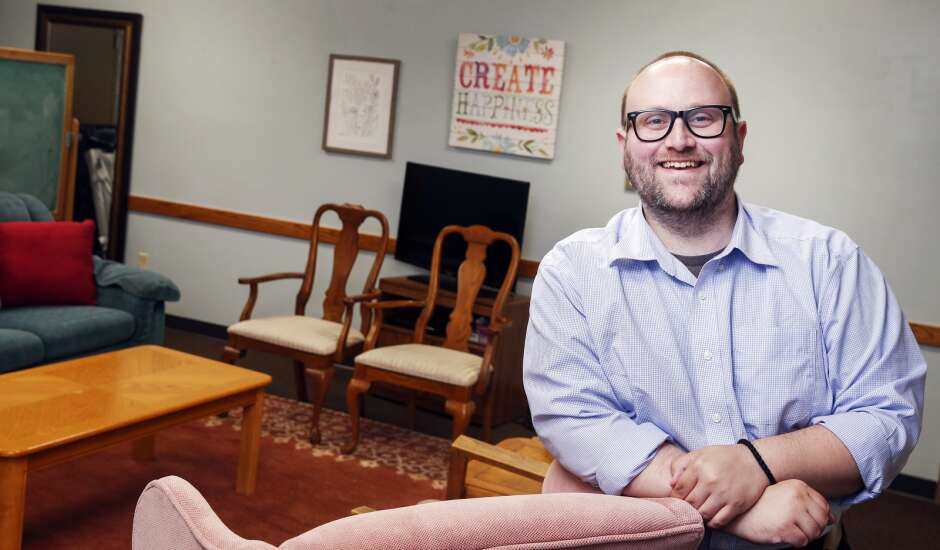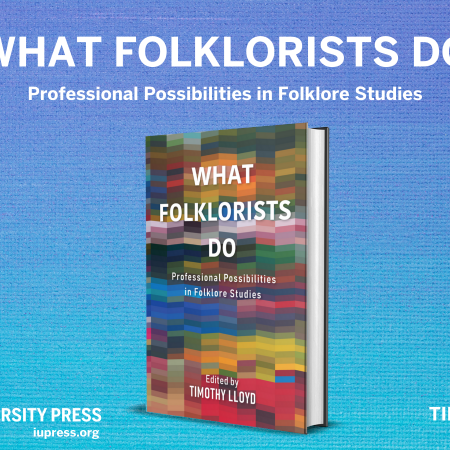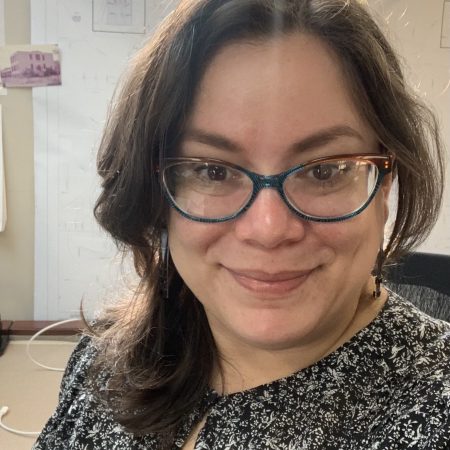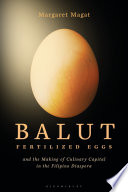Folklorist Nic Hartmann was recently the subject of a profile in the Cedar Rapids, Iowa-based newspaper The Gazette.
Folklorists in the News
The Indiana University Press has just announced that What Folklorists Do: Professional Possibilities in Folklore Studies, edited by former AFS executive director Timothy Lloyd, will be available for pre-order this week with an official publication date of October 5 (though the book is
We’re excited by the news that IU Folklore and Ethnomusicology doctoral candidate Gloria M. Colom Braña started her work this week as the Historic Preservation Program Manager with the City of Bloomington, Indiana. Gloria had been working with AFS this past year,
Join the Louisiana Endowment for the Humanities and folklorists Barry Jean Ancelet, Marcia Gaudet, Robin Roberts, and Nick Spitzer for a Bright Lights Online conversation about Lifetime Contributions to the Humanities awardee Frank de Caro. De Caro, a nationally renowned folklorist who
Dr. Nancy Yan recently talked to Dr. Margaret Magat, author of Balut: Fertilized Eggs and the Making of Culinary Nationalism, a rich study and deep analysis of one part of Asian American foodways. Balut is a fertilized egg that is boiled and eaten
Andrea Kitta’s scholarship on folklore and public health appeared in a recent episode of NoiseFilter, a daily podcast that focuses on important information regarding COVID-19. The podcast’s main hosts are Dr. MarkAlain Dery and Dr. Eric Griggs (Doc Griggs), the former an
John Burrison, curator of The Folk Pottery Museum of Northeast Georgia, was interviewed by the Atlanta Journal-Constitution (AJC) about the museum’s current exhibit on women potters, “The Men Won’t Tell Us Anything.” From the article: “’Good clay deposits are critical, but there is more
Andrea Kitta recently spoke with Slate Magazine about the emergent folklore surrounding COVID-19 and vaccinations. To read her take on how narrative and belief impact vaccination efforts, check out the interview on the Slate website.
On February 19, German’s national radio Deutschlandfunk Kultur ran a 55-minute program largely focused on Jim Leary’s work with the folk/vernacular/roots music of German-speaking (Austrian, German, Swiss) immigrants to the US. Though the article and the radio program are both in German, excerpts of
Maggie Holtzberg, the Folk Arts and Heritage Program Manager for the Massachusetts Cultural Council Agency, recently described her career as a state folklorist for Boston Irish. The article showcases some of her professional accomplishments, like the the major exhibition, “Keepers of Traditions: Art




